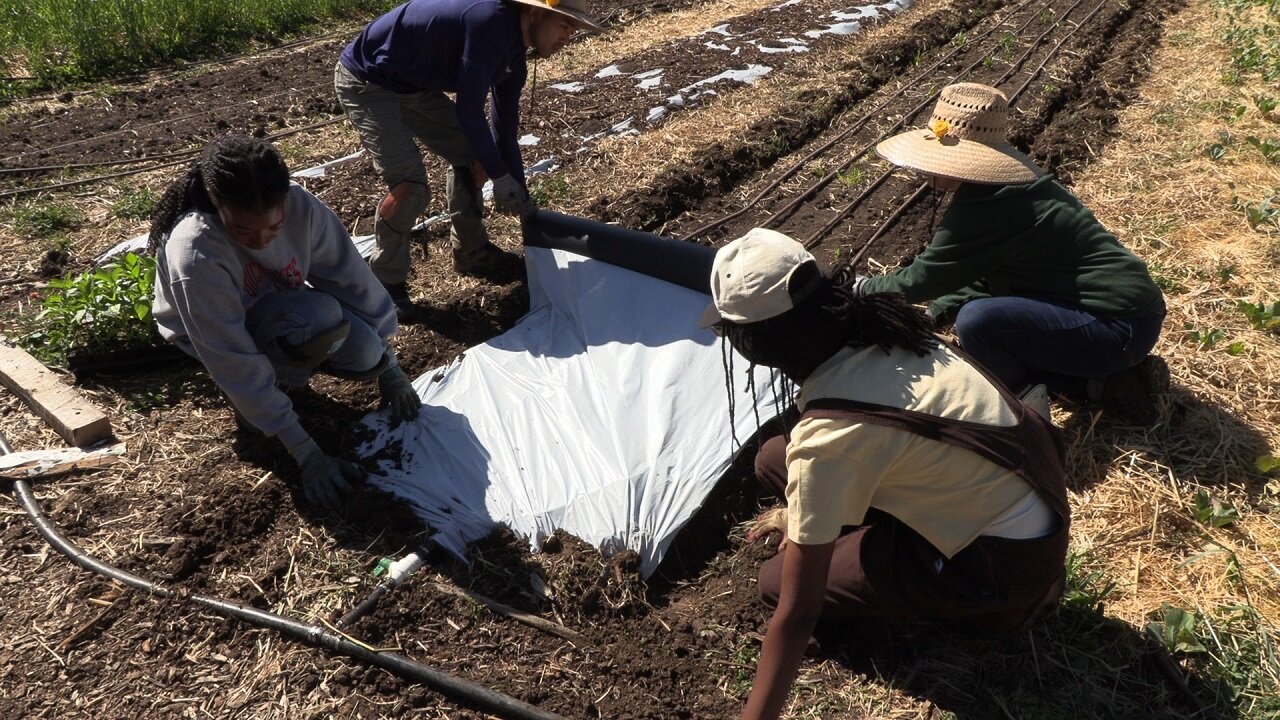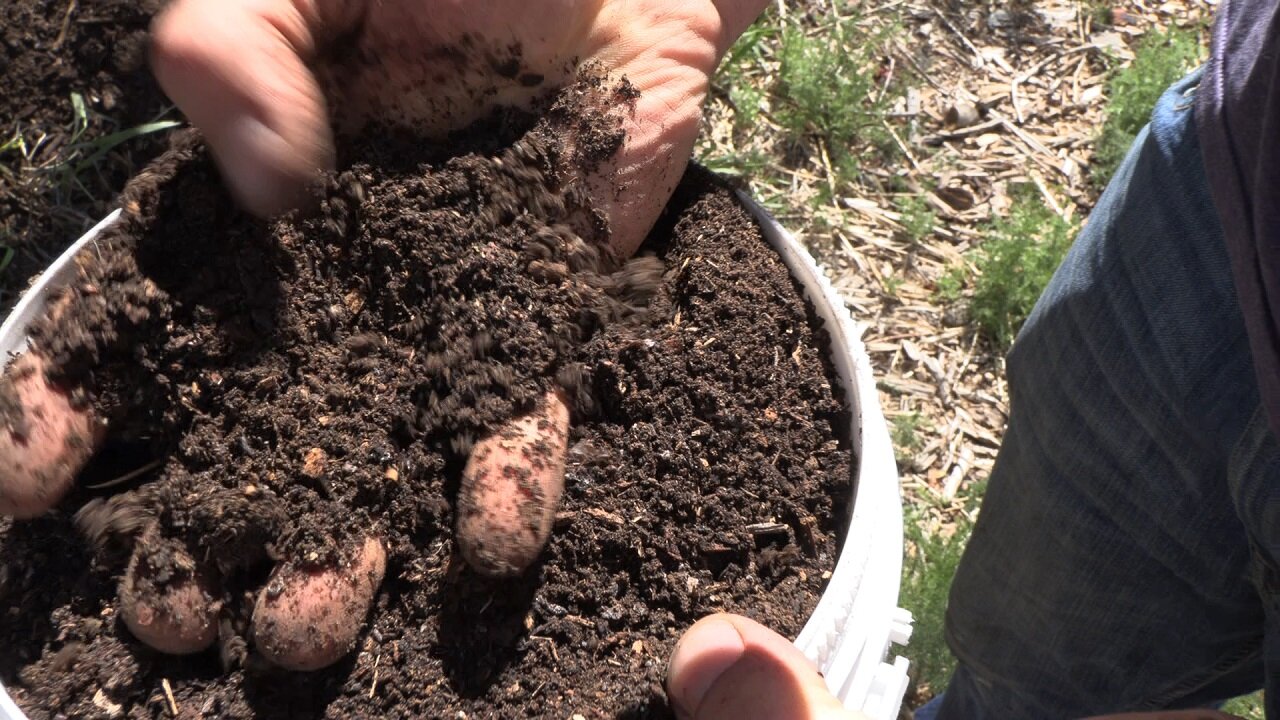Denver Compost Collective helps grow plants and the community

DENVER — Avocado seeds, banana peels, coffee grounds, eggshells, onions, grapes and a number of fruit and vegetable waste combined with leaves and dirt can make a beautiful combination, despite how it actually looks.
“What it ends up being is a super diverse mix of nutrients and micronutrients and minerals," said Shawn Hendrickson. "So it’s not like putting manure in a field, it’s the complete picture of what a plant can use.”
Hendrickson is talking about compost and, specifically, his organization's compost. About 12 years ago, he started out composting in what he called a "backyard community farm scale," where he, alone, collected food waste from neighbors to create compost. Now, Denver Compost Collective boasts three employees and collects hundreds of pounds of waste every week.
"We do it all. It's an integrated system. We do the processing, we make sure it's high quality in partnership with our farm and then we use in soil that then grows more food. Then, I literally feed that food to my family," said Hendrickson.
Every week, Denver Compost Collective picks up food waste from people who live in apartments throughout the Denver metro area, collecting an average of 100 pails. The service varies by size of pail from 1.25 gallons to 5 gallons and the cost ranges from $5 up to $9 a week. The money goes to the employees' salaries.
There are several benefits of composting, including reducing the demand for chemical fertilizers and limiting an individual's carbon footprint. Composting is also a form of waste-reduction: according to the Environmental Protection Agency (EPA), "food scraps and yard waste" combined make up almost a third of what Americans throw away.
"Making compost keeps these materials out of landfills where they take up space and release methane, a potent greenhouse gas," the EPA wrote.
After Denver Compost Collective collects the buckets of food waste, the employees mash up the “veggie” pile and mix it with local wood chips. Then, workers wet the mixture and place the pile over a blower motor so as to kick air underneath it, providing the necessary airflow for the magic of composting to work. The compost is covered with leaves — also collected locally — and is then heated up to a temperature of 140 degrees Fahrenheit, which according to Hendrickson is the perfect temperature.
Once the pile truly forms into compost, Denver Compost Collective works alongside Frontline Farming to deliver the compost to Majestic View Farm, which then uses the compost as fertilizer. This, in Hendricks' mind, completes the circle.

“When I first came to Frontline, it had that familiar feeling of a place that felt like the right things were cared about," said Hendricks.
Frontline Farming is a BIPOC (Black Indigenous People of Color), women-led farmer advocacy and food justice organization. On top of operating farm sites that produce high density and high nutrition foods for the community, Frontline hosts education opportunities and pushes policy initiatives.
[Related: Frontline Farming: Stories of liberation]
"We believe good foods, composting programs should be accessible to our communities, not just something that people who are affluent can access," said Fatuma Emmad, the co-founder and executive director of Frontline Farming.
Improving the local community and the people in it is at the heart of both organizations. They believe doing the right thing with your food can do more than just feed plants.
“For a lot of us it’s hard to know how to contribute to community and, you know, when you can contribute food waste that feeds the soil, it changes something about the relationship," said Hendricks. "It's not just the consumer relationship anymore. It becomes, 'I’m a part of this, it’s a part of me.'”
Related Stories
Lindsey Ford is a multimedia journalist with Rocky Mountain PBS. You can reach her at lindseyford@rmpbs.org.
